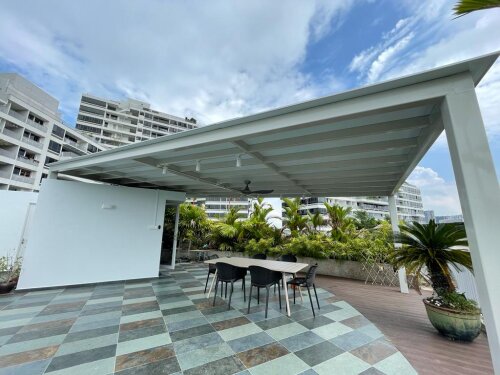Best Energy Regulatory Law Lawyers in Singapore
Share your needs with us, get contacted by law firms.
Free. Takes 2 min.
Or refine your search by selecting a city:
List of the best lawyers in Singapore
About Energy Regulatory Law in Singapore
Energy Regulatory Law in Singapore encompasses the legal frameworks, policies, and regulations that govern the generation, transmission, distribution, and retail of energy, particularly electricity and gas. It is primarily administered by government agencies such as the Energy Market Authority (EMA) and seeks to ensure a reliable, secure, and sustainable energy supply. The law also sets out rules for market competition, consumer protection, pricing, and safety standards in the energy sector. Given Singapore’s limited natural resources and focus on sustainability, regulations also address renewable energy, emissions, and energy efficiency.
Why You May Need a Lawyer
Legal assistance in the area of Energy Regulatory Law in Singapore may be necessary for individuals, businesses, or organizations involved in the energy sector when navigating complex compliance and regulatory requirements. Common situations where legal help is needed include:
- Applying for energy-related licenses or permits to generate, transmit, or retail electricity or gas
- Negotiating and drafting energy supply contracts or power purchase agreements
- Ensuring compliance with ever-evolving emissions, sustainability, and efficiency regulations
- Dealing with regulatory investigations, audits, or enforcement actions by the EMA
- Resolving disputes involving energy tariffs, metering, and billing
- Participating in government or public tenders for energy infrastructure projects
- Advising on mergers, acquisitions, or restructuring of energy businesses
- Adhering to renewable energy initiatives, incentives, and related compliance
- Understanding and planning for market liberalization and new policy announcements
Local Laws Overview
In Singapore, several key laws and regulations govern the energy sector. The main legislative framework is the Energy Market Authority of Singapore Act, which establishes the EMA as the sector regulator. Other significant legislation includes:
- Electricity Act - regulates the generation, transmission, distribution, import, export, and retail of electricity
- Gas Act - covers matters relating to the supply and licensing of gas, including safety standards
- Energy Conservation Act - sets out requirements on energy efficiency, emissions reporting, and energy management practices, especially for large users
- EMA’s subsidiary legislation, codes of practice, and market rules - provide detailed procedures and technical requirements for participants in the energy market
The energy market in Singapore is partially liberalized, allowing competition in electricity and gas retail, with consumer protection provisions in place. The regulatory regime also emphasizes reliability, security, market fairness, and the promotion of clean energy objectives.
Frequently Asked Questions
What is the role of the Energy Market Authority (EMA)?
The EMA is the key regulatory agency responsible for overseeing Singapore’s electricity and gas sectors. It implements and enforces laws, issues licenses, monitors market performance, and develops policies for energy security, reliability, and sustainability.
Do I need a license to generate or sell electricity in Singapore?
Yes, most activities involving the generation, transmission, distribution, import, export, or retail of electricity require a license from the EMA, except for certain small-scale or exempted activities.
What are the requirements for setting up a solar or renewable energy system?
Renewable energy installations must comply with building, safety, and grid connection requirements set by the relevant authorities. Licensing or registration with the EMA may be required depending on system capacity and usage.
How are electricity prices regulated?
Electricity prices for regulated consumers are determined by the EMA based on market conditions, supply costs, and a regulated tariff. For open market consumers, electricity prices are determined by competition among retailers.
What happens if I do not comply with energy regulations?
Non-compliance can result in penalties, fines, suspension or revocation of licenses, and, in serious cases, criminal prosecution. The EMA also has the authority to investigate and take enforcement actions.
How do I resolve a dispute with an energy provider?
Disputes can be addressed directly with the provider, but unresolved matters can be escalated to the EMA or, in some cases, resolved through the Small Claims Tribunals or civil courts. The EMA may mediate or arbitrate certain types of disputes.
Are there incentives for adopting energy-efficient technologies?
Yes, the Singapore government offers grants, incentives, and tax benefits to encourage energy efficiency and the adoption of renewable energy technologies. These are administered through various agencies, including the EMA and Enterprise Singapore.
What are my obligations as a large energy consumer?
Large energy consumers must meet requirements under the Energy Conservation Act, such as mandatory energy management practices, submission of energy use reports, and implementation of efficiency projects.
Can foreign companies participate in Singapore’s energy sector?
Yes, foreign participation is permitted, subject to licensing and local regulatory requirements. Many multinational companies operate in generation, retail, and infrastructure within Singapore.
How are environmental concerns integrated into energy regulations?
Singapore’s laws encourage low-carbon solutions, energy conservation, and renewable energy adoption. Regulatory frameworks incorporate emission standards, efficiency targets, and reporting for environmental protection.
Additional Resources
Individuals and businesses seeking more information or assistance regarding Energy Regulatory Law in Singapore can consult the following resources and organizations:
- Energy Market Authority (EMA) - regulator for electricity and gas sectors
- Singapore Legal Service - official legal information and resources
- Enterprise Singapore - incentives and guides for energy efficiency
- National Environment Agency (NEA) - regulations on energy conservation and emissions
- Professional bodies such as the Singapore Law Society’s Energy & Infrastructure Committee
- Singapore International Arbitration Centre (SIAC) for dispute resolution
- Relevant ministries, such as Ministry of Trade and Industry (MTI)
Next Steps
If you require legal advice or assistance in navigating Energy Regulatory Law in Singapore, consider the following steps:
- Identify the specific nature of your legal issue or compliance need within the energy sector
- Gather relevant documents, correspondence, and information related to your matter
- Consult a qualified lawyer with experience in Singapore energy regulatory matters for a preliminary assessment
- Consider non-legal resources such as government helplines or industry associations for general queries
- If pursuing licensing, contracts, or regulatory submissions, work closely with your legal counsel to ensure compliance
- For disputes, explore available mediation or arbitration channels in addition to litigation
Getting early and informed legal advice can help protect your interests, ensure regulatory compliance, and facilitate smooth operations within the highly regulated energy sector in Singapore.
Lawzana helps you find the best lawyers and law firms in Singapore through a curated and pre-screened list of qualified legal professionals. Our platform offers rankings and detailed profiles of attorneys and law firms, allowing you to compare based on practice areas, including Energy Regulatory Law, experience, and client feedback.
Each profile includes a description of the firm's areas of practice, client reviews, team members and partners, year of establishment, spoken languages, office locations, contact information, social media presence, and any published articles or resources. Most firms on our platform speak English and are experienced in both local and international legal matters.
Get a quote from top-rated law firms in Singapore — quickly, securely, and without unnecessary hassle.
Disclaimer:
The information provided on this page is for general informational purposes only and does not constitute legal advice. While we strive to ensure the accuracy and relevance of the content, legal information may change over time, and interpretations of the law can vary. You should always consult with a qualified legal professional for advice specific to your situation.
We disclaim all liability for actions taken or not taken based on the content of this page. If you believe any information is incorrect or outdated, please contact us, and we will review and update it where appropriate.
Browse energy regulatory law law firms by city in Singapore
Refine your search by selecting a city.











